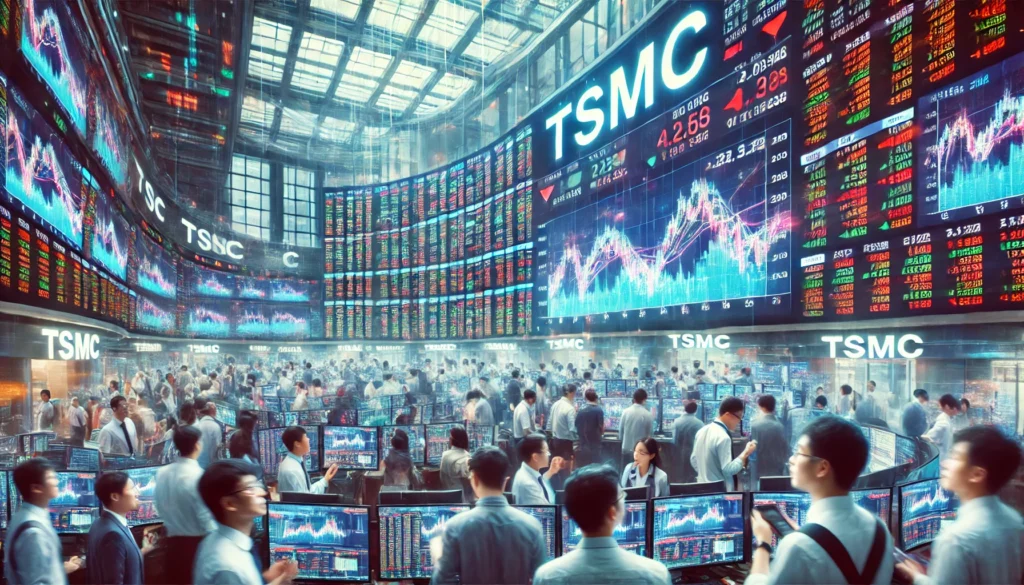Taiwan Semiconductor Manufacturing Co (TSMC) will capture investor attention as trading resumes on Monday, following a volatile week for AI-related stocks. The global semiconductor sector faced significant sell-offs after Chinese start-up DeepSeek unveiled a cost-efficient AI model, rivaling top US developers. This news caused market turbulence while Taiwan remained closed for the Lunar New Year holiday.
TSMC’s US-listed shares plunged 13% last Monday due to the DeepSeek announcement but recovered some of those losses later in the week. As a primary chip supplier to tech giants like Apple and Nvidia, TSMC now faces increased investor caution amid concerns over capital expenditure for AI advancements. DeepSeek’s breakthrough questions the need for substantial investments to create competitive AI technology.

Gary Tan, portfolio manager at Allspring Global Investments in Singapore, remarked, “Fund managers may need to reconsider their AI portfolio exposure in light of recent events.” He noted that emerging market investors might shift away from traditional tech hardware and markets like Taiwan and South Korea, seeking new AI growth prospects.
South Korean chip manufacturer SK Hynix, another major Nvidia supplier, saw its shares drop 9.9% after post-holiday trading resumed. This decline highlights the broader investor anxiety affecting AI-related stocks globally.
TSMC, which represents 39% of Taiwan’s benchmark index, could face mounting pressure as foreign investors reevaluate their positions. In January alone, overseas investors offloaded around US$1.26 billion in shares from Taiwan’s tech-centric market. A strategist at Jefferies mentioned plans to reduce stakes in Nvidia and TSMC within their global long-only equity fund, citing “potentially significant implications” stemming from DeepSeek’s rise.
Despite these challenges, optimistic investors remain confident in TSMC’s future. The company’s advanced semiconductor technology and attractive valuation offer reassurance. As of Thursday’s close, TSMC traded at roughly 19 times forward earnings, aligning with its five-year average and appearing more appealing compared to Intel’s 25 times and Nvidia’s 28 times.
Recent financial results from firms like Advantest and ASML indicate strong demand and consistent AI-related spending, potentially bolstering TSMC. Charles Shum, an analyst at Bloomberg Intelligence, highlighted that although some products might face temporary order slowdowns due to DeepSeek’s presence, “affordable AI models could drive broader adoption, accelerating demand for AI inference chips predominantly manufactured by TSMC, thereby supporting long-term growth.”
As markets respond to these shifts, TSMC’s performance will be closely monitored to assess investor sentiment and the broader impact on the semiconductor industry.



